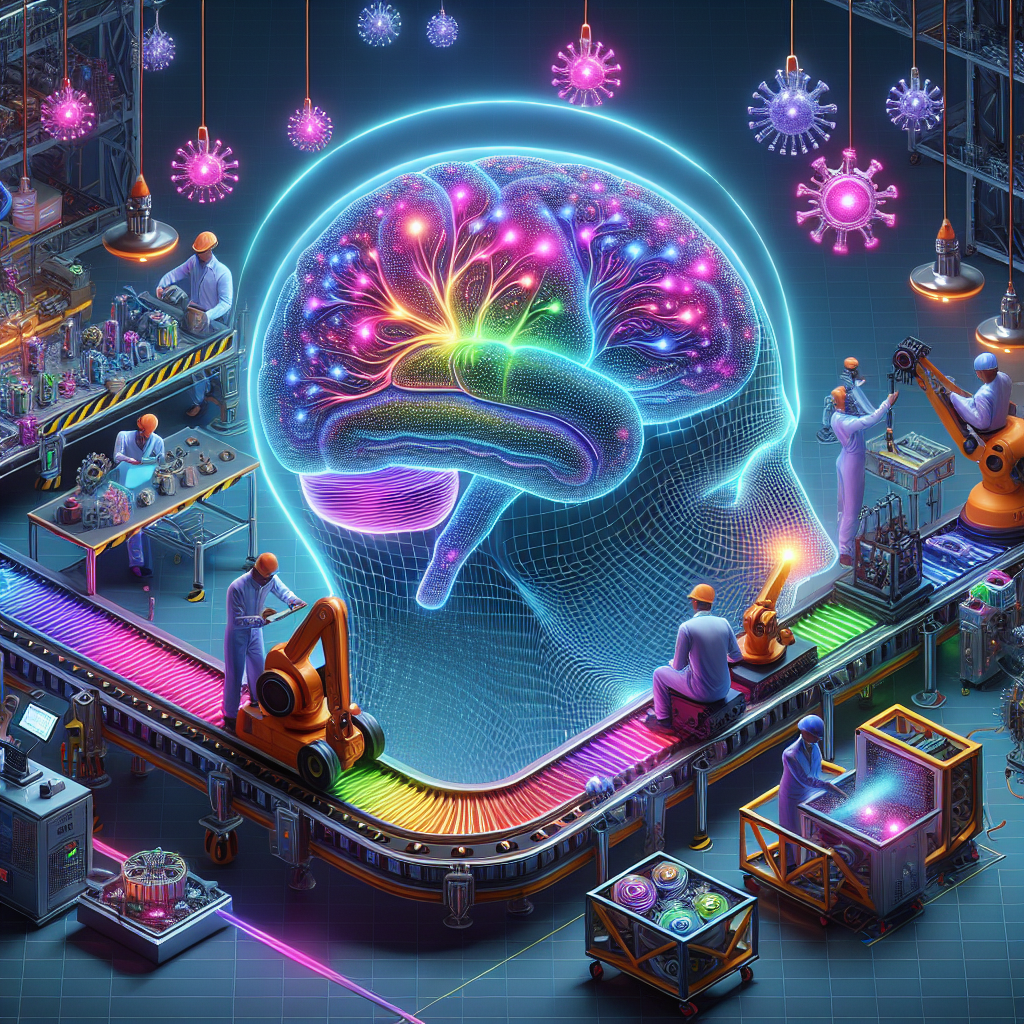In recent years, the manufacturing industry has seen a significant shift towards the integration of Artificial Intelligence (AI) in various processes, including Quality Assurance (QA). AI has the potential to revolutionize the way companies ensure the quality of their products, improve efficiency, and reduce costs. In this article, we will explore the role of AI in QA in manufacturing and how it is transforming the industry.
Role of AI in Quality Assurance in Manufacturing
Traditionally, QA in manufacturing has been a manual and time-consuming process, involving human inspectors checking products for defects. This method is not only inefficient but also prone to errors. AI, on the other hand, offers a more efficient and accurate solution to QA by leveraging machine learning algorithms to automatically detect defects and anomalies in products.
One of the key roles of AI in QA in manufacturing is defect detection. AI-powered systems can analyze images or sensor data from production lines to identify defects such as scratches, dents, or missing components. By using machine learning algorithms, these systems can learn to recognize patterns and anomalies in the data, allowing them to detect defects with a high level of accuracy.
Another important role of AI in QA is predictive maintenance. By analyzing data from sensors and equipment, AI can predict when machines are likely to fail and schedule maintenance before any issues arise. This not only helps to prevent costly downtime but also ensures that products are manufactured to the highest quality standards.
AI can also be used to optimize production processes and improve efficiency. By analyzing data from production lines, AI can identify bottlenecks, optimize workflows, and reduce waste. This not only improves the quality of products but also reduces costs and increases productivity.
Furthermore, AI can help manufacturers comply with regulatory requirements and quality standards. By analyzing data from production lines and quality control processes, AI can ensure that products meet the required specifications and are safe for consumers. This can help manufacturers avoid costly recalls and lawsuits, as well as build trust with customers.
Overall, the role of AI in QA in manufacturing is to improve the quality of products, reduce costs, increase efficiency, and ensure regulatory compliance. By leveraging machine learning algorithms and data analysis, AI can transform the way companies approach QA and drive innovation in the industry.
Frequently Asked Questions
Q: How does AI improve the accuracy of defect detection in manufacturing?
A: AI-powered systems use machine learning algorithms to analyze images or sensor data from production lines and learn to recognize patterns and anomalies. This allows them to detect defects with a high level of accuracy, reducing the risk of errors and ensuring that products meet quality standards.
Q: Can AI predict when machines are likely to fail in manufacturing?
A: Yes, AI can analyze data from sensors and equipment to predict when machines are likely to fail and schedule maintenance before any issues arise. This helps to prevent costly downtime and ensure that production lines run smoothly.
Q: How does AI optimize production processes in manufacturing?
A: AI analyzes data from production lines to identify bottlenecks, optimize workflows, and reduce waste. By improving efficiency and reducing costs, AI helps manufacturers to produce high-quality products at a lower cost.
Q: How can AI help manufacturers comply with regulatory requirements?
A: AI analyzes data from production lines and quality control processes to ensure that products meet the required specifications and are safe for consumers. This helps manufacturers to avoid costly recalls and lawsuits, as well as build trust with customers.
In conclusion, AI plays a crucial role in quality assurance in manufacturing by improving defect detection, predicting maintenance needs, optimizing production processes, and ensuring regulatory compliance. By leveraging machine learning algorithms and data analysis, AI is transforming the industry and driving innovation. Manufacturers that embrace AI in QA will not only improve the quality of their products but also reduce costs, increase efficiency, and build trust with customers.

